Open call to join LTER DEIJ Committee Working Groups
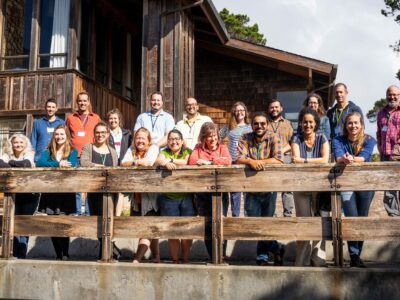
The LTER DEIJ committee would like to invite anyone from across the LTER Network who has a shared interest to join our Working Groups.

The LTER DEIJ committee would like to invite anyone from across the LTER Network who has a shared interest to join our Working Groups.
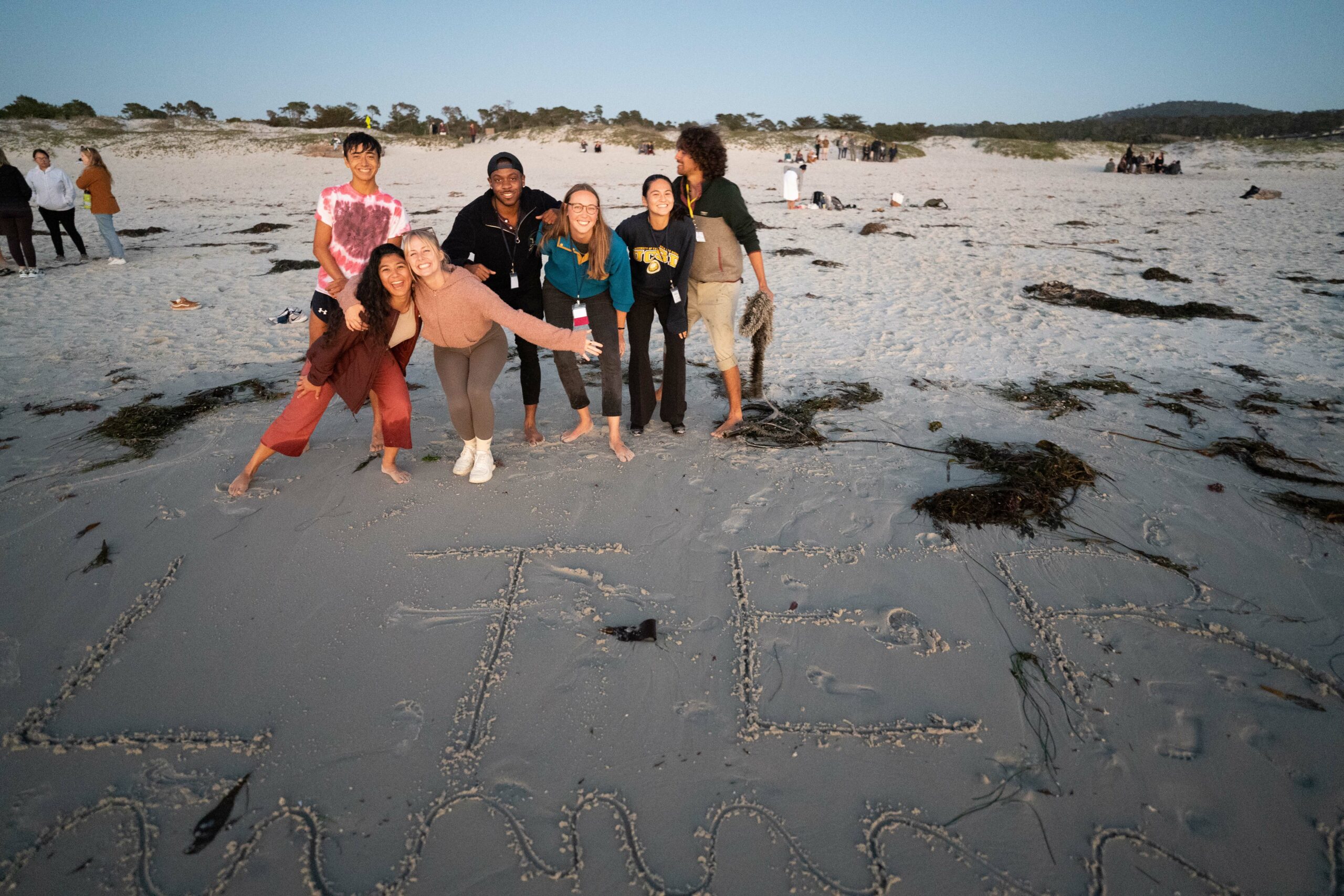
Application for LTER Graduate Writing Fellows 2023.

Applications for the 2022 cohort of LTER Graduate Student Science Writers are now open! Apply to write about current LTER science.

In general, the dreaded red X shows up when speakers insert images in their PowerPoint talks as “links” and then the links aren’t available when they move the file. But it can also be a symptom of an overly-large file size. It’s great to maintain images as very high resolution files for when you need… Read more »
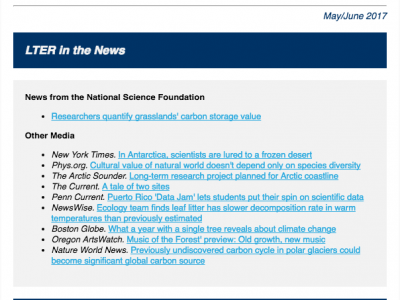
In May and June, the Science Update Newsletter covers: laboratory findings, by Santa Barbara Coastal LTER and other researchers, that show the sensitivity of sea urchin fertilization success to ocean acidification, published in Ecology and Evolution; public preferences of cultural ecosystem services, amassed by researchers at Coweeta LTER; from Luquillo LTER, long-term patterns of arthropod abundance… Read more »
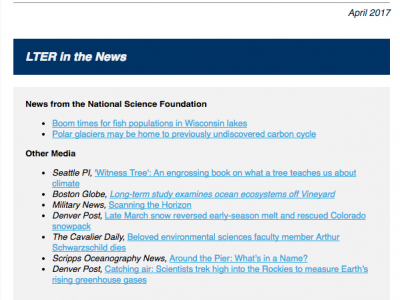
In April, the Science Update Newsletter covers: a perspective piece in Ecology Letters, by NTL and other researchers, on the history and opportunities for the field of macrosystems ecology; a comparison of the impacts of grazing and fire history on plant water use and niche structure—from researchers at the KNZ LTER; in Ecosystem Health and Sustainability,… Read more »
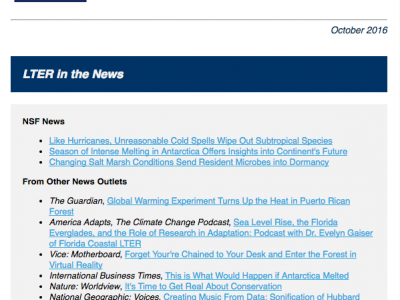
In March, the Science Update Newsletter covers: Announcements of three new LTER sites and the NSF symposium a HFR-LTER paper in Ecology on the influence of excess nitrogen on fungal decomposition (spoiler — it slows decomposition) a BES-LTER paper in Landscape Ecology on evolving paradigms of urban ecology a KBS-LTER study, published in Royal Society Open Science, on… Read more »

Synopsis Even as sea-level rise, drought, and fire increase pressures on some ecological systems, others are benefitting from protection and restoration efforts. But some changes are not reversible. Long-term research employs observations of past changes, together with long-running experiments and modeling to understand the processes responsible for sustaining ecological functions. Drawing on concrete examples and… Read more »
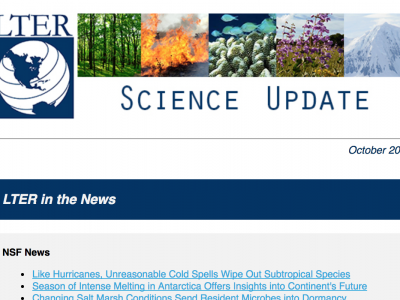
In February, the Science Update Newsletter covers: an KBS-LTER paper in the Journal of Soil and Water Conservation on collaborative solutions to nitrogen runoff; a CCE-LTER paper in Proceedings of the National Academy of Sciences on organic carbon sequestration at mesoscale ocean fronts; a BNZ-LTER study, published in Forest Ecology and Management, on the the influence of hare… Read more »

January 18, 2017 Synthesis The review committee recommended two Synthesis Working Group proposals for funding in the current round. Congratulations to Forest Isbell, Jane M. Cowles, and Laura Dee who will lead Scaling-up productivity responses to changes in biodiversity and Lauren Hallett, Daniel Reuman, Katharine Suding for Synthesizing Population and community synchrony to understand drivers of… Read more »